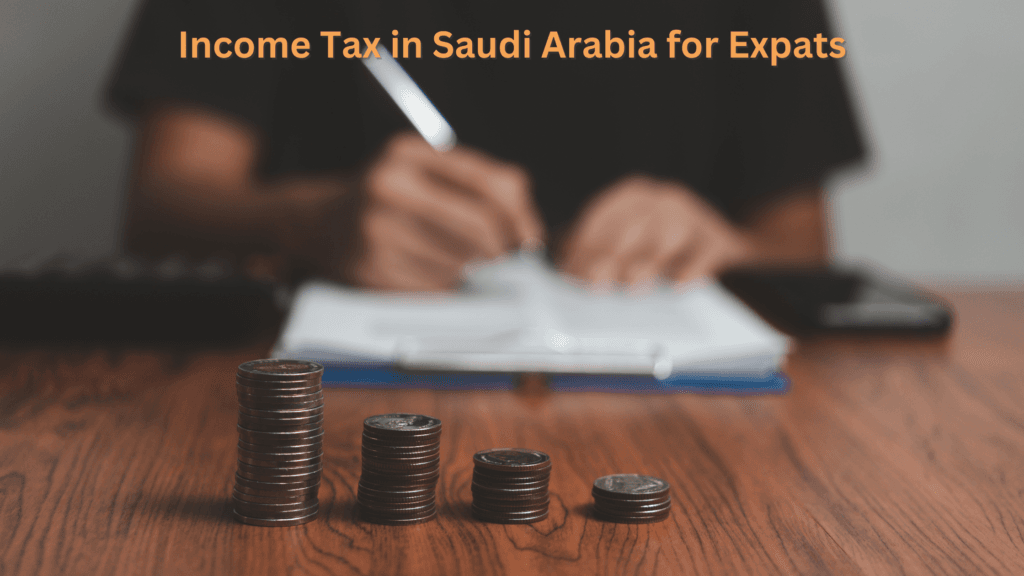Saudi Arabia has become a prime destination for expatriates seeking lucrative career opportunities and a high standard of living, primarily due to its tax-friendly environment. This guide explains the key aspects of the Saudi tax system in 2024, offering expatriates and foreign investors valuable insights into how to maximize their earnings and make well-informed financial decisions. ( Comprehensive Guide to Saudi Arabia Tax Rates for Expats )
Read: Do You Pay Property Taxes in Saudi Arabia?
The Tax-Free Advantage: No Personal Income Tax
One of the main attractions for expatriates in Saudi Arabia is the absence of personal income tax. Both residents and expatriates are exempt from paying taxes on their salaries, bonuses, and investments. This is a significant benefit compared to countries like the UK, where income taxes can range from 20% to 45%, and the US, where citizens are taxed on global income at rates as high as 37%.
Comparative Insight: In contrast to high-tax nations, Saudi Arabia allows high-earning professionals to keep more of their income, making it a financial haven for expatriates. According to the Saudi General Authority of Zakat and Tax (GAZT), this policy has played a crucial role in attracting top talent to the country. ( Saudi Arabia – Individual – Taxes on personal income )
Read: Can British Citizens Buy Property in Saudi Arabia?
Corporate Tax: Considerations for Business Owners
While there is no personal income tax, expatriates who own businesses must consider the corporate tax structure. The standard corporate tax rate for foreign-owned companies is 20%, excluding oil and gas companies, where tax rates can climb up to 85% based on profitability.
Sector-Specific Rates: Technology, manufacturing, and renewable energy sectors benefit from the 20% tax rate, while the oil and gas sector faces significantly higher rates due to its importance to the Saudi economy. ( Saudi Arabia – Corporate – Taxes on corporate income )
Read: What is the Tax on Real Estate in Saudi Arabia?
Incentives and Exemptions for Foreign Investors
Saudi Arabia offers various tax incentives and exemptions to encourage foreign investment. Businesses operating in free zones, such as King Abdullah Economic City, enjoy tax exemptions for up to ten years, followed by a reduced corporate tax rate of 5%.
These incentives are part of the Kingdom’s efforts to diversify its economy under Vision 2030, providing expatriates with attractive business opportunities in strategic sectors like technology and renewable energy.
Zakat: Religious Taxation
Zakat, a mandatory form of almsgiving in Islam, applies only to Saudi nationals and Gulf Cooperation Council (GCC) citizens, at a rate of 2.5% on qualifying wealth. Expatriates are not directly subject to Zakat but should be aware of its impact on joint business ventures with Saudi or GCC nationals.
Read: Is Saudi Arabia a Good Place to Invest?
VAT: Understanding Consumption Taxes
Saudi Arabia introduced a Value-Added Tax (VAT) in 2018, increasing the rate to 15% in 2020. VAT applies to most goods and services, affecting the cost of living and business operations. Despite the higher VAT rate compared to other countries, expatriates benefit from the absence of personal income tax, striking a unique financial balance.
Withholding Tax: Cross-Border Transactions
Withholding tax applies to certain payments made to non-residents, ensuring that taxes are collected on cross-border transactions. For instance, royalties and technical fees are subject to a 15% withholding tax, while dividends and interest generally face a 5% rate, unless reduced by a double taxation agreement (DTA).
Saudi Arabia has signed numerous DTAs to prevent double taxation and promote international trade, making it easier for expatriates to manage their global earnings.
Read: Can an Expat Buy a House in Saudi Arabia?
Excise Tax: Targeting Harmful Products
Saudi Arabia imposes an excise tax on specific goods, such as tobacco and energy drinks, to promote public health. This tax exceeds 100% on tobacco products and 100% on energy drinks, making it an important factor for businesses in these sectors.
Real Estate Taxation: Property Investment Opportunities
While Saudi Arabia does not impose traditional property taxes, expatriates investing in real estate should consider other fiscal factors, such as registration fees and potential corporate tax on rental income. Real estate investments are attractive due to the country’s booming market, especially in cities like Riyadh and Jeddah, where property values have seen significant appreciation.
Capital Gains Tax: Strategic Investments
Saudi Arabia does not impose capital gains tax on individuals. However, corporate entities must include capital gains in their taxable income, making it crucial for business owners to plan investments strategically.
Navigating the Legal Framework
Expatriates must understand local laws regarding property ownership, business setup, and tax compliance to avoid legal issues. Engaging with local legal and financial advisors is essential to ensure compliance and maximize financial opportunities.
Vision 2030: Shaping Saudi Arabia’s Future
Saudi Arabia’s Vision 2030 initiative aims to diversify the economy and reduce oil dependency. With a focus on tourism, technology, and renewable energy, the initiative has opened new avenues for expatriates to invest in emerging sectors. The tax-friendly environment further enhances Saudi Arabia’s attractiveness as a destination for professionals and investors.
Read: Is Saudi Arabia Good for Real Estate Investment ?
Living Costs: Balancing Tax Benefits with Expenses
In 2024, Saudi Arabia offers a competitive cost of living. Housing prices, healthcare, and transportation are affordable, especially in comparison to major global cities like London. For example, renting a one-bedroom apartment in Riyadh can range from SAR 3,000 to SAR 6,000 monthly, much lower than rent in cities like London.
Wealth Management and Investment Opportunities
The absence of personal income tax offers expatriates a rare chance to grow their wealth through smart investments in real estate, stocks, and mutual funds. Offshore accounts also provide options for managing global tax obligations.
Final Thoughts: Maximising Financial Freedom
Saudi Arabia’s tax policies present unique opportunities for expatriates to build wealth and achieve financial freedom. By navigating the local tax landscape, including corporate tax, VAT, Zakat, and excise tax, expatriates can optimize their earnings while enjoying the Kingdom’s dynamic economy.
Expatriates and foreign investors should collaborate with local advisors to ensure compliance, stay informed about regulatory changes, and leverage tax incentives for long-term prosperity.










